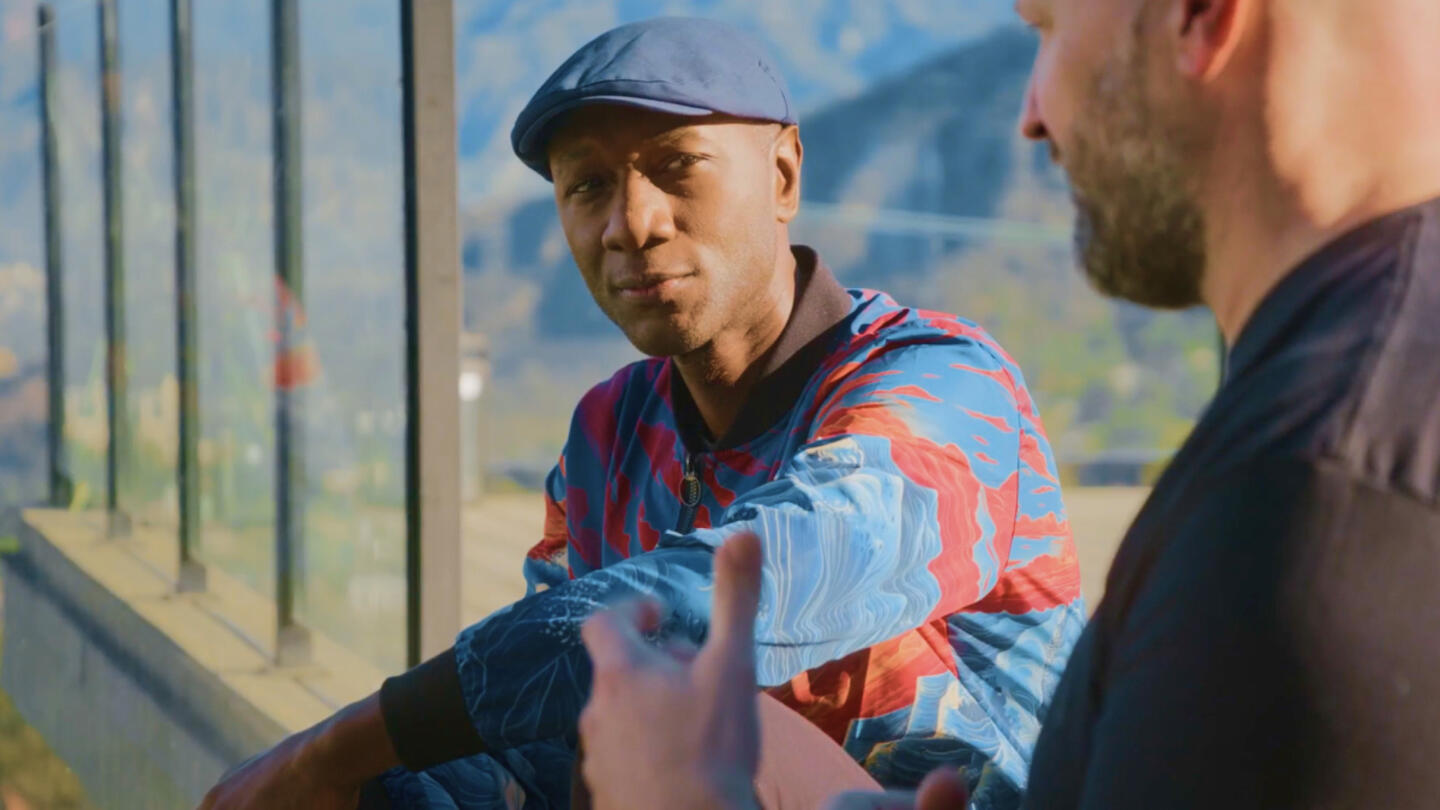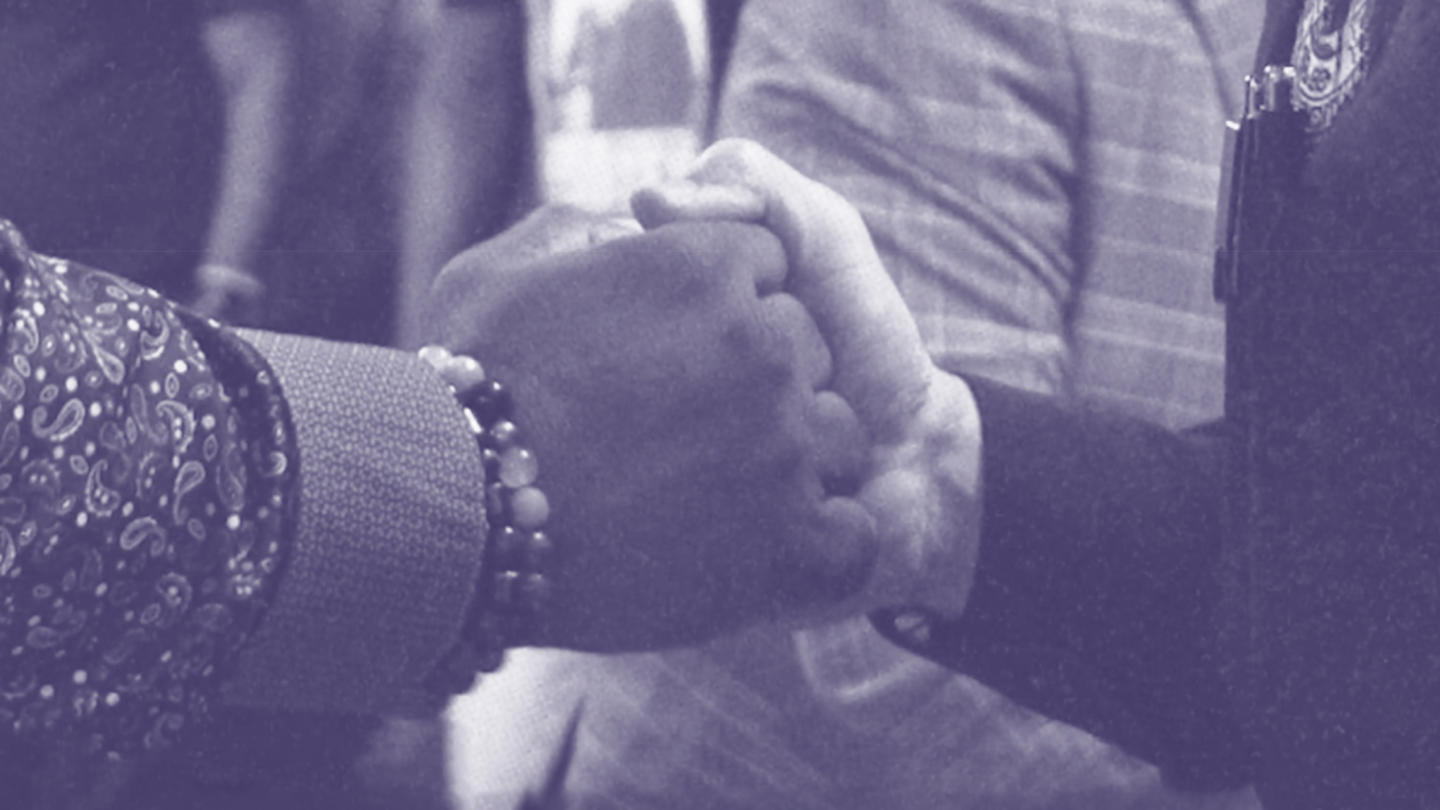When a family friend first suggested that Ryan Tillman join the local police force, he scoffed.
"I was like, 'No, I don't want to work for the man. I don't want to be a pig,'" he remembers.
Tillman overrode that knee-jerk response and decided to give it a try. He enrolled in the Academy. He became a police officer with the Chino (Calif.) Police Department in 2013 and found that he was a natural fit. However, as a young Black man, he quickly found himself in the crosshairs of a much larger problem when Michael Brown was killed by police in Ferguson, Mo., the next year.
That's when Tillman had his epiphany.
While talking with his mother about Michael Brown, Tillman saw that his role as a police officer helped her humanize law enforcement. He realized that finding similar common ground for others could help bridge an increasingly widening gap.
That led to Tillman founding Breaking Barriers United, an organization that engages in speaking and workshops to shatter stereotypes and heal fractures between law enforcement and local communities. Through open, honest conversations that recognize the dignity of both sides, Breaking Barriers United is working to confront intolerance and prejudice to help stop the cycle of violent police encounters.
Police and community relations have been breaking down
The relationship between many local communities across the United States and their police departments has hit a critical juncture.
According to a 2023 poll by the Washington Post and ABC News, only 39% of 1,000 adults surveyed in the United States believe that police are properly trained on how to avoid using excessive force, marking the lowest level of confidence the outlet has ever found.
Confidence levels dropped sharply after the 2020 murder of George Floyd, which brought the issue of overreach by law enforcement to national attention.
"I remember that feeling of 'I hate being a law enforcer right now,' not because I hate law enforcement, but because I hate the way people are looking at me in my own community," Tillman remembers. "Black people are looking at me like I'm a sellout and I'm part of the problem. In my own profession, people don't understand why the minority community is up in arms."
As a result, many communities and their police departments are polarized, a dynamic that stands as a barrier to people getting the support and safety they need.
Sign up for the Strong & Safe Communities newsletter for stories, ideas, and advice from changemakers working with their neighbors to address the biggest problems we face.
Breaking Barriers United opens up difficult conversations — with a big payoff
That's where Breaking Barriers United comes in.
The national organization brings together law enforcement and minority community members — to have conversations that are open, honest, and often difficult by design. As a Black police officer himself, Tillman is able to see the perspective of each side.
"On the community side, one of the things that has embedded in them is that every police officer is out with an agenda to get you or to kill you," he explains. "And the majority of police officers have good hearts and good intentions, and they want to do right by the community.
"People in law enforcement, they automatically assume that the community's going to cry at every little thing, and they feel like sometimes there's no real justified reason for them to be in fear. They automatically are dismissive of their feelings, as opposed to getting to the root cause of those feelings."
The goal of these discussions is to find common understanding and – in doing so – collaborate on solving the real challenges communities face.
"When it comes to empathy, people think that you just have to experience what another person has gone through in order to empathize with them," Tillman explains. "I always say empathy doesn't require experience. It requires feeling like you and I both have shared moments of happiness. You and I both have shared moments of anger. You and I both have shared experiences of sadness. I probably have grown up completely differently, and you have different experiences than I do. But what connects us is the emotional experience."
The future for Breaking Barriers United
Tillman's philosophy is helping to close the gap.
So far, Tillman, who is also a Heal America ambassador, has spoken to over 40,000 K-12 students and 1,000 college students across the country. His podcast, #ITSNEEDED, has been downloaded more than 1 million times. Breaking Barriers United has partnered with Dak Prescott's Faith Fight Finish Foundation and Matthew McConaughey's just keep livin Foundation to create programming for students and police officers alike.
Tillman still works as a police officer part-time, but his main role now is his work with Breaking Barriers United. He just published his first book, Happy Eyes: Becoming All Things to All People. Breaking Barriers United is also currently developing an academy in which first responders will be certified to serve as mentors in school districts across the country.
No matter how broadly Breaking Barriers United expands, however, their guiding principle remains the same realization Tillman had years ago when speaking with his mother about Michael Brown.
"The only reason she sees it like that is because her son, her pumpkin, is a police officer," he recalls. "I realized it was because she sees the humanity."
***
Breaking Barriers United is supported by Stand Together Foundation, which partners with the nation's most transformative organizations to break the cycle of poverty.
Learn more about Stand Together’s efforts to build strong and safe communities and explore ways you can partner with us.

At this ‘resort,’ children with intellectual disabilities are seen as gifts to be celebrated and loved.

Veterans experience loss when leaving service. Could this be key to understanding their mental health?

The Grammy-nominated artist is highlighting the stories we don’t get to hear every day.

With his latest project, Blacc isn’t just amplifying stories — he’s stepping into them
